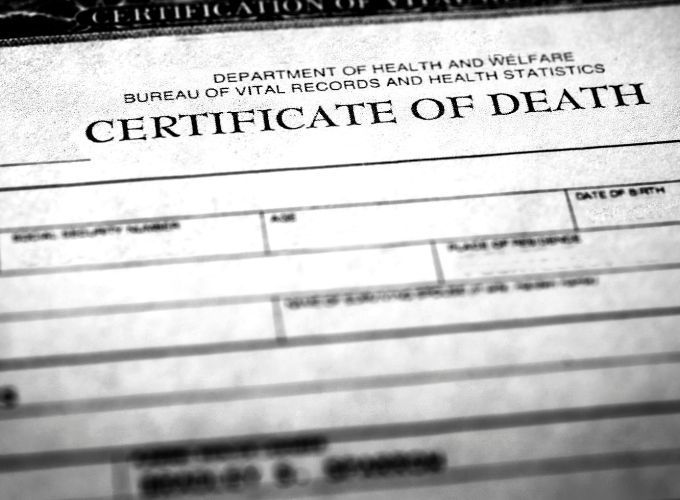Articles Of Interest
The Benefits of Pre-Arranging Your Funeral
Give your loved ones the gift of peace of mind by pre-planning your funeral.

Planning for a funeral may not be an easy topic to consider, but it is one of the most thoughtful things you can do for your loved ones. At Buch Family of Funeral Homes, we have helped countless families through difficult times, and we have seen how pre-planning relieves emotional and financial stress. By planning in advance, you ensure your final wishes are honored and your family is not left with overwhelming decisions or unexpected expenses.
Peace of Mind for You and Your Loved Ones
Losing a loved one is an emotional and overwhelming experience. Without a plan in place, families are often left making difficult choices during a time of grief. Pre-arranging your funeral removes this burden by ensuring the details are documented and clear. Instead of having to make decisions on burial or cremation, service details, or financial arrangements, your loved ones can focus on honoring your life and supporting each other.
- Why Pre-Plan?: Pre-planning ensures your funeral aligns with your wishes while sparing your family from making decisions during an emotional time. Whether you want a traditional service, a simple gathering, or a unique celebration of life, everything will be clearly outlined in advance.
- Pre-Planning Benefits: Arranging your funeral in advance allows you to personalize every aspect, from music and readings to burial or cremation preferences, ensuring the service reflects your life and values.
Financial Protection: Locking in Costs & Reducing Expenses
One of the biggest concerns for families after a loss is the financial impact of a funeral. Funeral costs tend to rise over time, but pre-arranging allows you to lock in today’s prices and prevent unexpected financial strain on your loved ones. Instead of facing sudden expenses, your family will have a secure plan in place that ensures everything is taken care of.
- Pre-Funding Options: You can pre-pay for your funeral through flexible options such as trust funds, funeral insurance, or installment plans. This spreads costs over time rather than placing a financial burden on your family later.
- How Prepayment Works: By prepaying, your money is safely held in a funeral trust or insurance policy, ensuring it is available when needed. You have full control over the plan, and in many cases, it can be transferred if you relocate.
Ensuring Your Wishes Are Honored
Pre-planning allows you to customize every aspect of your funeral, ensuring that your service reflects your values, beliefs, and personality. Whether you prefer a traditional funeral, cremation, or a personalized celebration of life, making these choices in advance ensures that your family does not have to make tough decisions on your behalf.
- Personalization Options: You can specify everything from the type of service to the music, readings, or even theme that reflects your life. If you want a favorite song played, a military honor guard, or a specific dress code, pre-planning ensures these details are followed.
- Service Types: Whether you prefer burial in a family plot, cremation with an urn placed in a memorial garden, or an eco-friendly green burial, pre-planning lets you choose the option that best aligns with your wishes.
How to Get Started with Pre-Planning
Pre-planning is easier than you might think. At Buch Family of Funeral Homes, we provide several ways to start the process based on what works best for you.
- Schedule a Consultation: Our Prearrangement Specialist, Adam Kraut, can discuss your options in person, by phone, or online. He is here to guide you through your choices and answer any questions.
- Use Our Online Pre-Planning Form: If you prefer to start the process on your own, our secure online planning form allows you to outline your preferences at your own pace, from the comfort of your home.
- Explore Payment Options: We offer trust funds, insurance-backed funeral plans, and flexible payment options to fit your budget and provide long-term financial security for your family.
Common Concerns & Myths About Pre-Planning
Some common misconceptions prevent people from pre-planning, but the truth is funeral pre-arrangements provide security and flexibility.
- “It’s Too Early to Plan”: Many believe funeral planning is only for the elderly, but pre-arranging at any stage of life ensures you have control over your decisions. Learn more about why it is never too early to plan.
- “Pre-Paying Means I Can’t Change My Mind”: Most pre-planning options allow for adjustments if your preferences change, or you move to another area. You can transfer your plan to another funeral home if needed. See how flexible pre-planning can be.
- “Pre-Arranging is Expensive”: In reality, locking in today’s prices protects against inflation and rising costs. Plus, payment plans make it easier to budget over time. Find out how prepaying saves money.
Give Your Loved Ones the Gift of Peace of Mind
Pre-arranging your funeral is one of the most meaningful gifts you can leave for your family. It provides clarity, protects them from unexpected expenses, and ensures your final wishes are conducted. At Buch Family of Funeral Homes, we are here to guide you through every step in this process with care and compassion. If you have any questions or are ready to begin pre-planning, we are happy to help.











